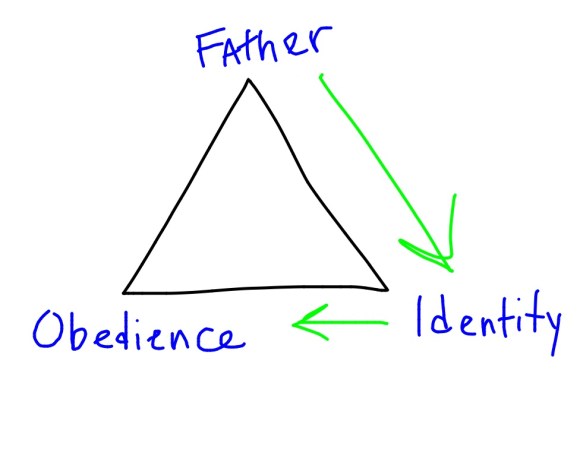I traveled to Abilene for ACU Summit this week – a ministry conference geared for the tribe of my youth, Churches of Christ. The main reason I came was because the resource group I work with, Mission Alive, hosted a Celebration on Monday night where we tell the stories of mission and discipleship from the front lines of the kingdom for those who are interested to hear and partner.
I’ve also had the opportunity to reconnect to old friends all over the nation who are pursuing God’s calling for their lives. Some are worship ministers. Others are preaching ministers. Still others are missionaries and church planters. It’s exciting to see what God is doing through them.
But I’ll be honest – coming to events like these is always a challenge for me on some level.
Part of it is the temptation for comparison. How am I doing compared to that person? How is the church I’m leading doing compared to the church that person is leading?
Another part of it is my vocation and calling. I was groomed to be a preaching minister. Yet God called me into church planting and missionary work. Granted, I do preach, and I enjoy it – but because I’m a missionary and work with a small church I do many other things as well – many of which I enjoy as much or more than preaching. So I’m not really a Preaching Minister (capitals intentional). Admittedly, there’s a sense of loss there for me because I don’t fit in with my preaching buddies the way I would if I was a Preaching Minister.
Enough about me. That just gives you a backdrop for what I really want to share.
I realized something in the midst of this internal dialogue I’ve had here at Summit that I was not able to realize a couple years ago.
 This is an identity problem.
This is an identity problem.
And it has a lot to do with the gospel.
The following thoughts and diagrams are inspired by the book Covenant and Kingdom.
Let me explain: our culture (both church and otherwise) often encourages us to glean personal value from our performance – whether it’s the calling we pursue; our sense of success in that calling; our ability to live faithful lives and obey God; or the affirmation we receive from other people for doing something really well (be it preaching, leading, growing an organization, or selling a product).
But trouble occurs when we take that performance and fashion our identity out of it. We think we are worth something more for having performed well. Or we think we are worth something less for having performed poorly.
It’s then tempting to take this performance-formed identity and approach God in one of two ways:
1. If we feel like we’ve done well, we say to God: “Looking what I’ve done. Are you proud of me, God? Do you love me? Do you accept me? Haven’t I done something here that’s pleasing to you?”
2. And if we don’t feel like we’ve done something good, or if we perform poorly, or disobey, or struggle with habitual sin, we approach God saying: “Look what I’ve done. I’m so embarrassed. I don’t measure up. I’m not as good as other people. I’m worthless. There’s no way you can love me.”

This was true for me in academics. I always found a lot of personal value in making good grades. Making A’s meant that I was worth something, that I was intelligent, that people should like me. On the flip side, I was filled with anxiety if I thought that I might not get an A. I would obsess over it. I would doubt myself. Interestingly, when I finished school, I had trouble evaluating myself because I no longer had something as concrete as grades by which to measure. But I quickly found other metrics.
Here’s the good news: this line of thinking is built on a lie. It’s not the truth about God or about us.
Here’s the truth:
- God loves us unconditionally.
- He created us to reflect his image and so we have profound worth as his children.
- There is nothing we can do to make God love us more than God already does.
- There is nothing we can do to make God love us less that God already does.
- We have everything we need, right now, within ourselves and God.
- This is the good news of the kingdom of God!
Our identity as children of God flows out of these truths about God. All we need to do is receive God’s love and believe it’s true.
Then we can live and serve out of this identity with a peaceful heart – without being consumed by how well we feel like we perform. We obey. We do good works. We live out God’s calling for our lives. We bear fruit. And God loves us regardless of the outcomes.

My 3DM coach, Jeff Saferite, showed me how this identity triangle was true even for Jesus: he was anointed with the Holy Spirit in his baptism, and God said, “This is my son, whom I love, with whom I am well pleased.”
God said this of Jesus before he was active in kingdom ministry. He hadn’t yet healed the sick, fed the 5,000, discipled the 12 or gathered the masses. God’s love and affection for Jesus was true before he ever did those things.
As I’ve lived into this truth about God and myself over the last two years, I can see a drastic difference in my spirit. I am not anxious the way I was before. I am peaceful and content with my life. I’m excited about what God might choose to do through my obedience. I’m certainly a work in progress, as my internal turmoil at this ACU conference reveals.
But I’m growing to believe more and more the reality articulated so well by James Bryan Smith – that I am a child of God and I live in the unshakeable kingdom of God.
How does this hit you? In what ways do you struggle to find identity in God rather than performance?
How is the identity triangle good news for you and those around you?








Great to see you in Abilene, Charles. Stay in touch…and go see Lawless!
Good to see you, too! Keep up the good work in your writing! Holler if you’re ever in Dallas. And I will definitely see the movie.
(addition to second paragraph) And others are middle aged youth ministers.
Ha ha. I guess I just think of you as a future church planter. 🙂